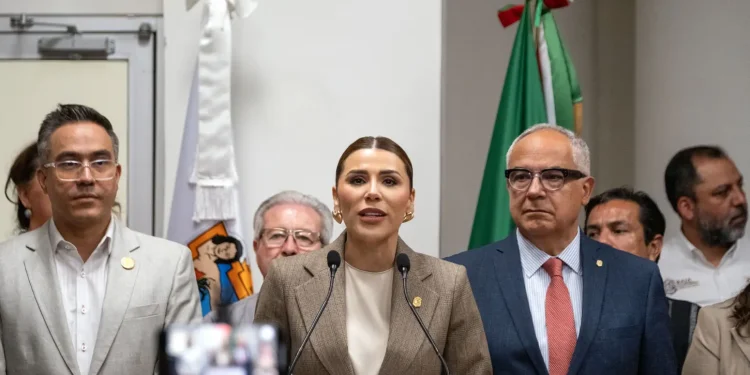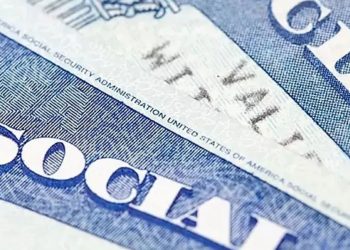The U.S. has begun restricting travel for top Mexican political figures allegedly tied to drug corruption. Targets include leaders in President Claudia Sheinbaum’s party, state governors, and former Cabinet members.
In a bold move to increase pressure on Mexico, the Trump administration is placing travel bans and sanctions on high-profile Mexican politicians believed to be involved in drug corruption, according to U.S. officials.
Two Mexican politicians have already confirmed they can no longer enter the United States. Officials expect more to be affected as the administration reviews a list of dozens identified by U.S. law enforcement and intelligence agencies as having connections to drug trafficking.
That list reportedly features leaders from Sheinbaum’s ruling Morena party, state governors, and allies of former President Andrés Manuel López Obrador. The officials discussed the policy changes anonymously due to the sensitivity of the topic.
Marina del Pilar Ávila, governor of Baja California, confirmed that both she and her husband—a former congressman—had their U.S. visas revoked. She attributed the cancellation to a situation involving her husband but insisted this does not imply guilt. “The fact that the State Department has cancelled my visa does not mean that I have committed something bad,” Ávila stated at a news conference.
Sheinbaum said her administration requested clarification from U.S. authorities but was told visa matters are confidential and received no further explanation.
These visa restrictions pose a political test for Sheinbaum and her left-leaning Morena party. Despite Mexico’s historical resistance to U.S. interference, Sheinbaum has managed to maintain domestic support by defending national sovereignty in talks with President Trump while also showing a willingness to address major trafficking concerns.
Mexican media reported that Tamaulipas Governor Américo Villarreal also lost his visa, although his spokesperson called those claims “unconfirmed.” Villarreal has been frequently accused—though he denies it—of ties to drug trafficking. Last month, the mayor of Matamoros, Tamaulipas’ second-largest city, was stopped at the U.S. border but said he had not been officially barred.
The U.S. State Department declined to comment, citing legal restrictions on sharing visa information.
According to three U.S. officials, some visa bans may be paired with Treasury Department sanctions that freeze U.S.-based financial assets and prohibit business dealings with American companies. Ávila stated she has no U.S. bank accounts and is not facing financial sanctions.
The Treasury Department also declined to comment.
White House Hardliners Lead Crackdown
The administration’s March decision to impose tariffs on Mexico was justified by accusations that Mexico had become a haven for cartels trafficking deadly narcotics—contributing to hundreds of thousands of overdose deaths in the U.S.
In its aggressive campaign against fentanyl and other drugs, the administration has labeled key Mexican drug cartels as terrorist organizations and even explored the possibility of unilateral U.S. military strikes, officials said.
A small White House team initiated the review of Mexican political ties to drug cartels, collecting intelligence on government, military, and political figures suspected of criminal connections.
Led by Deputy Homeland Security Adviser Anthony Salisbury and overseen by Deputy Chief of Staff Stephen Miller, this group has taken a central role in shaping Mexico policy.
A White House spokesperson declined to comment on the team’s influence over the travel bans.
One official familiar with the process said the new list of targets overlaps with a file compiled in 2019 by DEA agents after López Obrador curtailed Mexico’s cooperation with U.S. counterdrug efforts. That earlier initiative led to the indictment and eventual conviction of Mexico’s former security chief, Genaro García Luna, in a New York federal court.
DEA officials Terrance Cole and Matthew Donahue, who helped assemble the 2019 list, had previously proposed canceling U.S. visas for several named Mexican officials. Senior diplomats rejected the idea at the time. Cole now awaits Senate confirmation as Trump’s nominee to lead the DEA.
Concerns Over Evidence Standards and Diplomacy
Some current and former U.S. officials voiced concern over the policy. Unlike criminal prosecutions, visa cancellations and Treasury sanctions require lower standards of evidence, raising fears that actions could be taken based on weak or incomplete information.
Officials said the visa bans rely on Section 212 of the Immigration and Nationality Act, which allows the U.S. to block entry for any noncitizen it “knows or has reason to believe” has aided or colluded with drug traffickers. The law also permits cancellation of visas held by relatives who may have benefited financially.
One U.S. official emphasized the move sends a strong message against corruption but cautioned about its potential to damage cooperation. “We should be using all the resources of the government to go after these people,” the official said. “But the bigger question is: Does this work with President Sheinbaum? Are you going to lose an opportunity now with a Mexican government that has been very compliant on the drug front?”
Former Mexican Ambassador to the U.S., Arturo Sarukhaan, warned that further targeting of Sheinbaum’s allies could strain relations and undermine her efforts to present a cooperative stance. “It gives her… a perfect excuse to say that everything bad that’s happening in Mexico… is because of U.S. imperialism,” he said.
A Shift in Tone from the Top
While López Obrador campaigned on a promise to eradicate corruption, he often denied it existed within his administration—even as journalists uncovered numerous cases involving his inner circle and family.
President Sheinbaum, however, appears to be taking a firmer stance. Speaking to a Morena party congress on May 4, she warned against favoritism, nepotism, and any form of collusion.
“All members of Morena should conduct themselves with honesty, humility and simplicity,” she declared. “There cannot be any collusion with crime — whether organized or white collar.”









